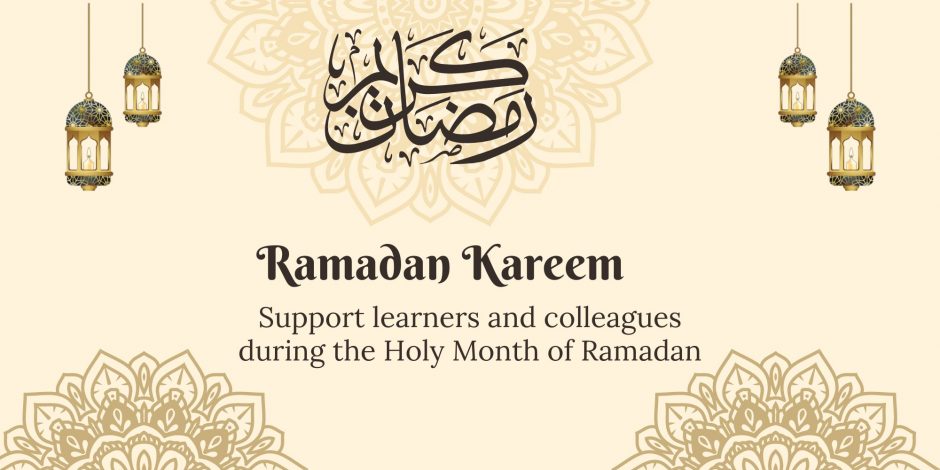
Many Muslim staff, learners and faculty will be observing Ramadan which entails fasting, prayer self- reflection, spiritual cleansing, community building, and self-improvement. Those taking part in Ramadan have two meals per day. One before the sun rises Suhoor, and iftar which is a fast-breaking evening meal. Prayers take place five times per day ending with Isha’ (the last prayer of the day). Following the Isha’ some may attend the long prayer Tarweeh bringing the community together in the mosque after the Iftar.
As noted by Nour Youssef in an interview to the Ubyssey, “Ramadan gives me some much needed time to sit with myself and reflect on how I spend my time, and the things I value the most. By giving up things that usually seem so essential to us – food and water being the biggest – we are encouraged to replace the time we used to spend on these things with things that are more beneficial to our inner spiritual state. Things that make us better family members, better friends, better worshippers and better humans.”
How to support friends/colleagues observing Ramadan?
- Extend Ramadan greetings such as: Ramadan/Ramzan Mubarak or Ramadan Kareem. Arabic sayings that translate to blessed Ramadan and generous Ramadan. Your friends/colleagues will appreciate your thoughtfulness.
- The end of the month is marked by the new moon and Eid- al – Fitr is celebrated in order to show gratitude for the previous month of reflection. Common greetings are Eid Mubarak and Eid Sa’id which translates to Blessed Eid and Happy Eid.
- Do not be apologetic for eating in front of your friend/colleague while they are fasting. To be more inclusive, avoid organizing events focusing on food during this time of the year (e.g. “lunch and learns” or “coffee hours”).
- If you supervise self-identified Muslim staff, be flexible and mindful when scheduling for time off, events and meetings. Consider flex time options.
- During fasting, Muslims are not allowed to drink water. Be thoughtful of this when scheduling long presentations or meetings.
- Educate yourself and raise awareness in order to create a more inclusive working/learning environment.
- Do not assume every Muslim is fasting. If one of your Muslim colleagues/friends is not fasting it might be due to illness, pregnancy, breastfeeding, amongst other reasons. Abstain from asking why.
- Do not treat fasting as suffering. Many Muslims look forward to Ramadan; it is a sacred and deeply personal practice.
Ramadan Mubarak!
Sources
- Ramadan in the Workplace
- Quick guide to Ramadan
- 10 Ways to support our JCU students and colleagues who are observing Ramadan
- Ramadan Etiquette: 5 ways to support Muslim Friends During Ramadan
- What is Ramadan and how to be an ally?
Originally seen on UBC Faculty of Medicine’s Respectful Environments, Equity, Diversity, and Inclusion website